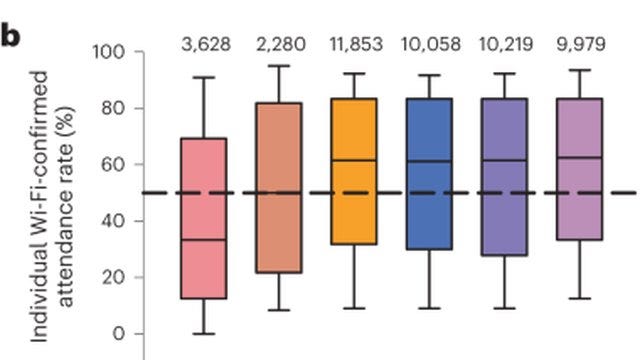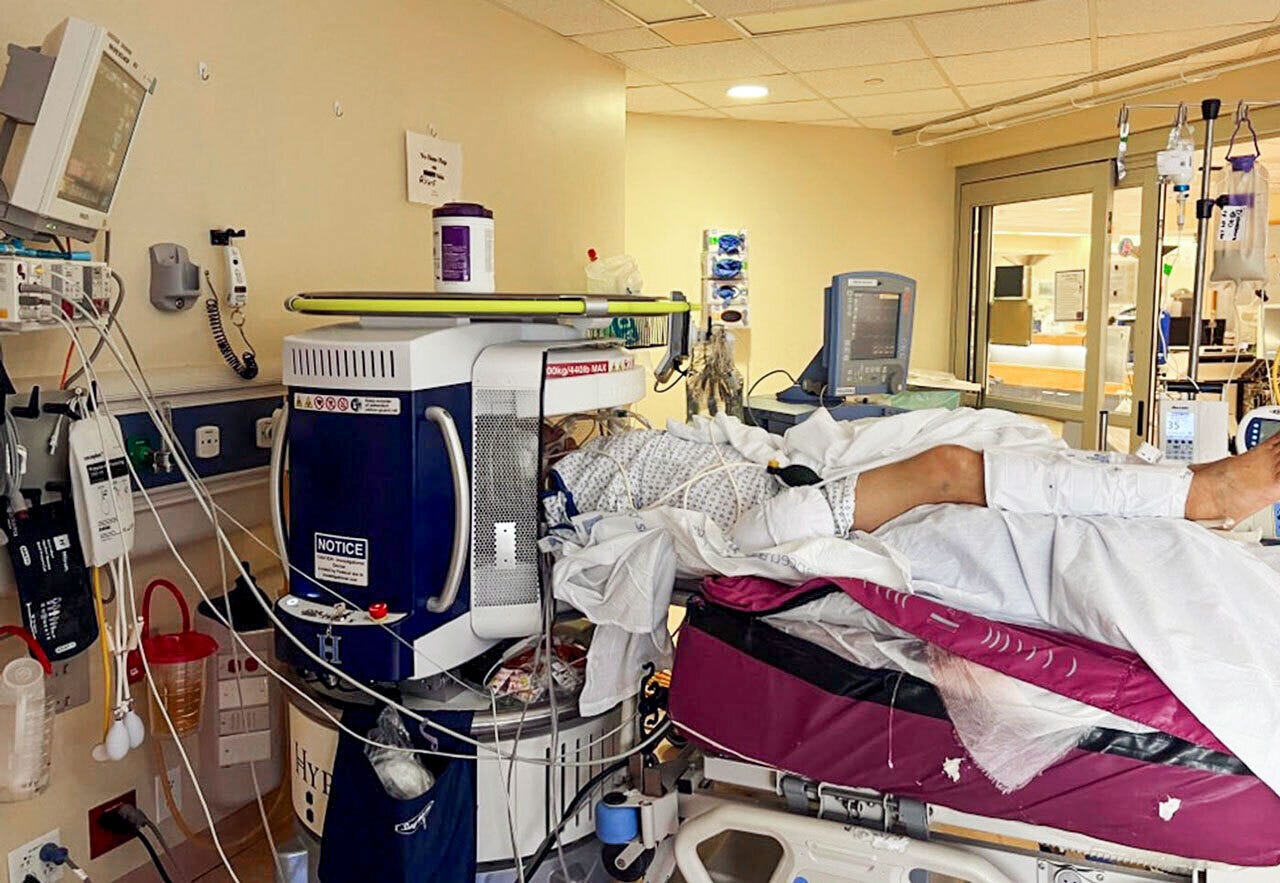Sci-Ed Update 254
Curly hair is cool, early classes are not good, what is a prosection, anyway?, a mini-MRI, and the science (or not) of The Rest of Us—plus more headlines.
Cool New Experiment Explains Why We Evolved Curly Hair
A head full of curls could be just the thing to help us stay cool in the sun. (Willie B. Thomas/Getty Images)
…findings suggest that scalp hair evolved in response to our species' upright posture and our increasingly large brains.
"[T]he emergence (or retention) of scalp hair may have struck an optimal balance between maximizing heat loss across the large surface area of the body and minimizing solar heat gain on the small surface area of the scalp, directly over the brain," researchers write.
"Tightly curled hair may provide an additional reduction in heat influx beyond the capacity of typically straight mammalian hair."
Read more→ AandP.info/ofj
Early morning university classes are associated with impaired sleep and academic performance
Attending classes and sleeping well are important for students’ academic success. Here, we tested whether early morning classes are associated with lower attendance, shorter sleep and poorer academic achievement by analysing university students’ digital traces. Wi-Fi connection logs in 23,391 students revealed that lecture attendance was about ten percentage points lower for classes at 08:00 compared with later start times.
Diurnal patterns of Learning Management System logins in 39,458 students and actigraphy data in 181 students demonstrated that nocturnal sleep was an hour shorter for early classes because students woke up earlier than usual.
Analyses of grades in 33,818 students showed that the number of days per week they had morning classes was negatively correlated with grade point average. These findings suggest concerning associations between early morning classes and learning outcomes.
Kevin Patton comment→ No kidding?
Read more→ AandP.info/ksp
Academia at risk
The freedom to research and publish without fear of state retribution is one that many academics take as a given. Unfortunately, this basic freedom is not universal.
Iran is not the only country where academic freedoms are restricted by an authoritarian regime. In recent years, autocratization has increased worldwide. This frequently means that academics who criticize the state are at risk.
To put a number to this, the international network ‘Scholars at Risk’ recorded 319 attacks on higher education in 2022: these included 159 cases involving killings, violence or disappearances. The past year has seen large-scale government action against academic freedoms.
Kevin Patton comment→ Perhaps we should also be concerned about what is happening within states in Western countries. Authoritarianism, even within democratic countries, usually targets higher education. My predictions for 2023 in Episode 132 of The A&P Professor podcast mention this issue.
Read more→ AandP.info/l5o
Prosections in Anatomy Education: Establishing a Definition and Describing Preparation, Use, and Educator Perceptions
Image: PxHere
There is an ongoing debate in anatomy education regarding the use of prosection versus student dissection in anatomy lab instruction. While there are plenty of studies comparing dissection and prosection, there are very few studies on how prosections are prepared and how they are used in anatomy instruction. Furthermore, there is no consistent definition of prosection used in the literature. This study used an anonymous questionnaire distributed to anatomy educators internationally and asked for educator views on defining, preparing, and using prosections in various course settings.
One-hundred twenty-five completed responses representing fifteen countries and sixty-seven institutions underwent a thematic analysis to describe major themes in participant responses. From responses, a definition of prosection was developed, and the major perceived strengths and weaknesses of prosection use were described. Furthermore, quantitative data regarding the prevalence of prosection use as either a supplemental or primary resource and details pertaining to the perceived expertise of prosectors was collected.
This study demonstrates the extensive reach of prosections in anatomy education and sets a foundation from which future studies on unique prosection preparation and use can stem from.
Read more→ AandP.info/oss
The Cause of Depression Is Probably Not What You Think
Depression has often been blamed on low levels of serotonin in the brain. That answer is insufficient, but alternatives are coming into view and changing our understanding of the disease.
Image: Harol Bustos for Quanta Magazine
People often think they know what causes chronic depression. Surveys indicate that more than 80% of the public blames a “chemical imbalance” in the brain. That idea is widespread in pop psychology and cited in research papers and medical textbooks.
The unbalanced brain chemical in question is serotonin, an important neurotransmitter with fabled “feel-good” effects. Serotonin helps regulate systems in the brain that control everything from body temperature and sleep to sex drive and hunger. For decades, it has also been touted as the pharmaceutical MVP for fighting depression. Widely prescribed medications like Prozac (fluoxetine) are designed to treat chronic depression by raising serotonin levels.
Yet the causes of depression go far beyond serotonin deficiency. Clinical studies have repeatedly concluded that the role of serotonin in depression has been overstated. Indeed, the entire premise of the chemical-imbalance theory may be wrong, despite the relief that Prozac seems to bring to many patients.
Read more→ AandP.info/bl6
Mystical and insightful psychedelic experience may improve mental health
Image: CC0 Public Domain
Researchers conducted a machine learning analysis of data from nearly 1,000 respondents to a survey about their previous non-clinical experiences with psychedelic drugs. The analysis suggests that individuals who scored the highest on questionnaires assessing the mystical and insightful nature of their experiences consistently reported improvements in their anxiety and depression symptoms.
The analysis also suggests that a challenging experience while on these substances, one that feels frightening or destabilizing, can have beneficial results, especially in the context of mystical and insightful experiences. This could be helpful for practitioners to know as they guide patients through clinical trials testing psychedelics' therapeutic potential.
"Sometimes the challenge arises because it's an intensely mystical and insightful experience that can, in and of itself, be challenging," said senior author Alan Davis, assistant professor and director of the Center for Psychedelic Drug Research and Education in The Ohio State University College of Social Work.
"In the clinical research setting, folks are doing everything they can to create a safe and supportive environment. But when challenges do come up, it's important to better understand that challenging experiences can actually be related to positive outcomes."
The research was published online recently in the Journal of Affective Disorders.
Read more→ AandP.info/mj1
Fungi don’t turn humans into zombies. But The Last of Us gets some science right
Human body temperature and brain chemistry may be impenetrable barriers for zombifying fungi
A human casualty of a fictional fungal pandemic is shown in this image from the HBO series The Last of Us. LIANE HENTSCHER/HBO
Antifungal drugs exist and they cure many fungal infections, though some infections may persist. Some that spread to the brain may be particularly difficult to clear.Some fungi are also evolving resistance to the drugs. And a few fungal vaccines are in the works, although they may not be ready for years.
The experts I talked to say they hope the show will bring attention to real fungal diseases.
Read more→ AandP
MRI FOR ALL
Portable low-field scanners could revolutionize medical imaging in nations rich and poor—if doctors embrace them
A low-field MRI scanner images a patient in their bed in the intensive care unit at Yale New Haven Hospital. YALE SCHOOL OF MEDICINE
The cheaper, smaller machines might also allow patients to get more frequent follow-up scans. That’s a prospect that resonates with Ronald Walsworth, a physicist at the University of Maryland, College Park, and co-founder of Hyperfine. In 2007, his then–2-year-old son developed a noncancerous brain tumor. He was treated successfully, says Walsworth, who serves on Hyperfine’s advisory board. Still, he says, “There were signs that were not caught early and things that were not decided most efficiently because the MRIs only could happen once in a while.”
Read more→ AandP.info/3tz
More physicians are calling for fallopian tube removal to prevent ovarian cancer
A section of an ovarian tumor. VIRGINIA COMMONWEALTH UNIVERSITY LIBRARIES
…a growing chorus of physicians is recommending a procedure that can significantly reduce the chances of developing ovarian cancer. The procedure is called a salpingectomy — or removal of the fallopian tubes, where the majority of ovarian cancer cases begin.
The operation, advocates say, is short, relatively simple, and safe.
Some surgeons already offer salpingectomies to women who are done with childbearing and are undergoing other procedures, such as tubal ligation for permanent birth control, the removal of cysts or fibroids, or a hysterectomy. Researchers are now exploring whether to offer the surgery more widely.
Read more→ AandP.info/cp1











